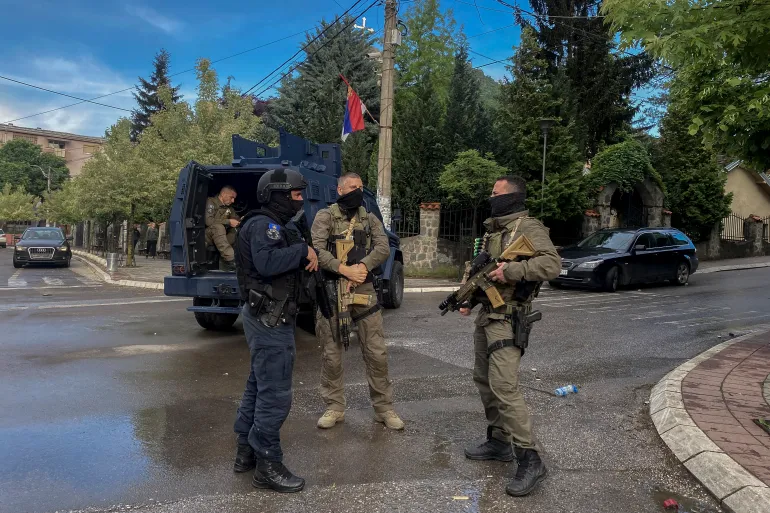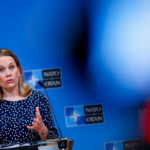The non-governmental organization “International Crisis Group”, whose mission is to prevent conflicts in the world, in the newest report dedicated to Kosovo, has addressed the situation in the North, the relationship with Serbia in general, offering recommendations for resolving the conflict between the two countries. The ICG describes North Kosovo as rebel territory, stressing that Kosovo is gaining control over it, but is losing the opportunity for normalization with Serbia. This article also mentions the Association that has stalled, which would be good for the Serbs of Kosovo and Pristina – emphasizes ICG.
Kosovo should withdraw its special police units from regions with a Serbian majority, ICG estimates.
Excerpts from the report:
Executive Summary
Kosovo is winning the battle for control of its rebel, Serb-majority north, while hopes for normalization between Pristina and Belgrade are fading. The remaining Serbian institutions on the territory of Kosovo, which survived the 1999 war and Kosovo’s independence in 2008, are being dismantled as a result of a Serbian-backed paramilitary operation in September 2023. While limited violent resistance remains possible , northern Kosovo, which hoped for autonomy or union with Serbia, is reluctantly submitting to Pristina’s authority.
These are difficult days for the Serbian minority, whose future is vital for the rapprochement between Belgrade and Pristina. To remain a community capable of self-governance, they need continued access to Serbian institutions, especially in education and health care, plus financial support. They also need a sense of security, which can only come with the return of Serbs to the Kosovo police force, which they resigned in protest in November 2022. Prishtina should withdraw its special police from the north and Belgrade should help prevent further paramilitary activities.
In 2021, Pristina began enforcing its authority in northern Kosovo with a large militarized special police force that faced a hostile local population. Her measures prompted a mass boycott and resignation by Serbs, so that the police and public officials in this Serb-majority area are now almost entirely Albanian. Several rounds of barricades set up by the locals mobilized the population, many of whom are armed; Serbia also infiltrated several hundred troops to bolster the resistance on two occasions in 2022. Police and Serbian rebels frequently exchanged gunfire.
In May 2023, an angry Serbian mob trying to attack a special police unit clashed with NATO peacekeepers separating the two groups, leaving many injured on both sides. Months later, in September, police clashed with a paramilitary group armed with military-grade weapons; one officer was killed by a remotely detonated mine, while three Serbs died in the exchange of fire.
International outrage and the group’s amateurish appearance broke northern resistance to government authority. Prishtina took advantage, moving quickly to cement its authority over the north. In December 2023, it reached an agreement with Serbia on the mutual recognition of license plates. In January 2024, the government banned the import and use of the Serbian dinar, cutting off funding to Serbia’s remaining institutions along with pensions and other benefits. In February, it began raiding and closing Serbian government offices in villages in southern Kosovo and confiscating dinars found in Serbian post offices. Prishtina ignored requests from the US and Europe to suspend these measures until a workable solution could be negotiated.
In fact, a reasonable solution is already on the table. In December 2022, the EU, which has mediated the Belgrade-Pristina dispute since 2011, proposed a broad normalization agreement whereby Serbia would not formally recognize Kosovo’s independence, but would act as if it had. In exchange, Kosovo would give its Serb minority a self-governing unit that includes its ten Serb-majority municipalities (as it promised a decade ago, but has yet to do). The deal was a compromise that gave all parties what they most urgently need. Brussels reportedly cajoled Belgrade and Pristina into accepting it verbally, but could neither get them to sign it nor agree on key details about how it would be implemented. It remains unimplemented and may be overtaken by events.
A bone of contention is the planned Serbian autonomous unit, which Kosovo calls the Association, and the Serbs the community, of Serb-majority municipalities, the various names reflecting disagreements about its scope and powers. The two sides agreed to create it in a landmark 2013 deal to balance key Serbian concessions to Pristina. Since then, disputes over the entity’s powers – and internal Kosovar (Kosovo Albanian) opposition to autonomy – have kept it on the table. Serbia wanted it as a state within a state, modeled after Bosnia’s Republika Srpska, which was unrealistic for a rural region of almost 50,000 inhabitants. Kosovo asked for the opposite, a minimal body with a purely coordinating role for its member municipalities.
The other obstacle is the de facto recognition of Kosovo by Serbia. The EU’s agreement is unclear on the issue, but France, Germany and Italy expressed it in subsequent statements, and Serbia categorically rejects the request. De facto recognition means treating Kosovo as an independent state without a formal declaration and without consent for other states and international organizations such as the UN to recognize and accept it as a member. Serbia is ready to deal with Kosovo one-on-one, but determined to keep its status an open issue.
There is little hope that EU dialogue can overcome these obstacles, and the Belgrade-Pristina relationship is likely to remain frozen. Against this background, both parties and external actors who want peace in the Western Balkans should turn their attention first to mitigating the short-term risk of violence and then to achievable goals that can encourage political stability failing a breakthrough in the agreement. of normalization.
The main priority is demilitarization. Kosovo should withdraw its special police units from Serb-majority regions and, until it does so, should deploy them sparingly and only in coordination with NATO’s KFOR peacekeepers, whom northerners see as as more reliable given their commitment to neutrality. To increase Pristina’s sense of security, KFOR should help Kosovo control its border, prevent further smuggling of heavy weapons, and find caches brought earlier. For its part, Serbia should stop supporting paramilitary activity and prosecute those involved in the killing of Kosovo police to the extent that they are under its jurisdiction. In the absence of a comprehensive political solution, the onus will be on the EU, US and NATO to keep the peace and avoid escalation until the conditions for a negotiated agreement are ripe. This will mean pressuring both Pristina to withdraw the special police and Belgrade to take the aforementioned steps, maintaining and, if necessary, reinforcing the NATO peacekeeping presence.
Another priority is to provide for the needs of the Kosovo Serb minority – with or without a formal framework for autonomy. Northerners depend on schools, universities and healthcare facilities operated by Serbia. Most of the population works in jobs paid directly or indirectly by Belgrade, and many receive social security, all in Serbian dinars, through a network of post offices and banks that Pristina wants to close. Ethnic discrimination and language barriers prevent all but a few Kosovo Serbs from the regular labor market. If they lose access to Serbian jobs and benefits, many will emigrate.
The EU and the US should ask Kosovo to guarantee that these key Serbian services will remain in place. They should also continue to pressure Pristina to end the ban on food and medicine imports from Serbia, as well as on the use of the Serbian dinar. For all these points, Kosovo should follow the lead of the EU and the USA.
Although Brussels and Washington pursue these objectives, however, they should continue to explore with Pristina whether it can embrace the terms of the EU normalization agreement, including the creation of a Community/Association of Serbian municipalities. This deal would be good for the northern Serbs, but also for Pristina: moving towards northern autonomy will surely be an essential part of any deal that brings Kosovo more into the international system, and Kosovo may never have an offer. better than this.







